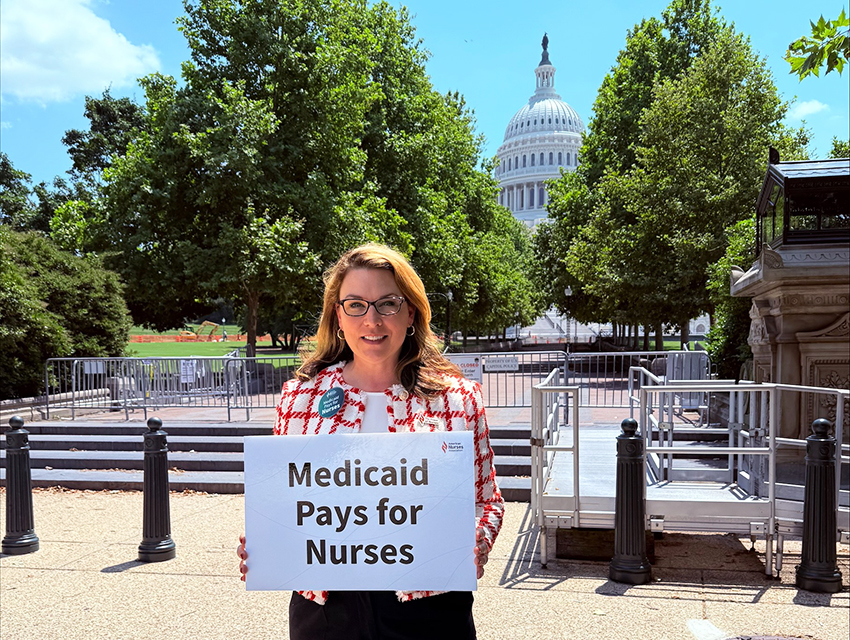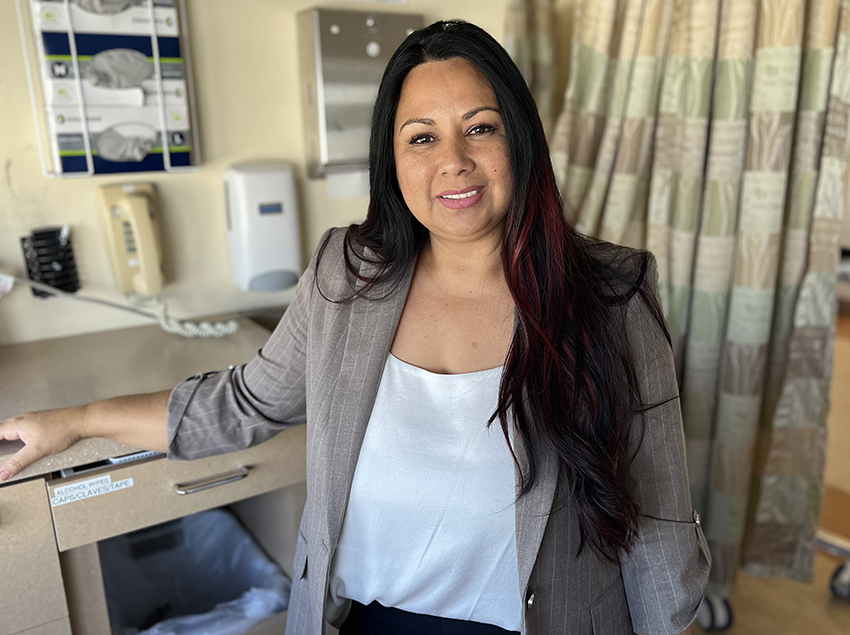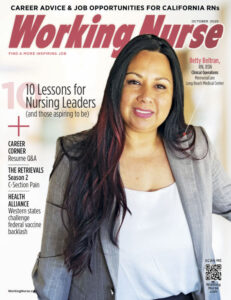Nursing & Healthcare News
ANA’s Jennifer Mensik Kennedy Sounds the Alarm
Federal budget cuts will be catastrophic for the healthcare system

Jennifer S. Mensik Kennedy, RN, Ph.D., NEA-BC, FAAN, is the president of ANA, the nation’s largest nursing organization. She recently spoke with Working Nurse about H.R. 1, the “One Big Beautiful Bill,” the recently enacted federal budget reconciliation act that makes massive cuts to many federal programs and departments.
Deeply Harmful
Mensik Kennedy says ANA is most concerned about the drastic cuts to Medicaid, which “will make healthcare inaccessible for millions of Americans” while also costing nursing jobs.
“With more uncompensated care and less funding, hospitals will be forced to cut their funding, nurses will lose their jobs, and access to care will be dangerously compromised,” she explains.
ANA is also alarmed by cuts to Title VIII nursing workforce development programs. “Failing to fund these programs would not only disrupt the nurse workforce pipeline, but also cripple the future capacity of our healthcare system at a time when demand for nurses is growing,” Mensik Kennedy says.
“These moves are deeply harmful to the current nursing workforce.”
Legislative Efforts
Although the cuts are disheartening, the nursing leader believes it’s time for action, not despair.
“There is work we can do now to prevent the healthcare system from crumbling under the effects of this bill,” she says. “Our next steps include actively supporting legislative efforts aimed at reversing the most harmful Medicaid restrictions and protecting healthcare access for vulnerable populations.”
She adds, “We are also ramping up our advocacy to protect Title VIII funding, which is vital to sustaining and strengthening the nursing workforce pipeline. We have worked with key supporters to introduce Title VIII reauthorization bills in the Senate and House.”
What Nurses Can Do
Nurses can play a part in the effort to preserve the healthcare system. “We have seen firsthand the power individual nurses have in shaping healthcare policy,” Mensik Kennedy says.
“The easiest place to start is contacting your elected officials. Share your personal stories and firsthand experience to help lawmakers understand the real-world impact of their decisions.”
Challenges Ahead
ANA has an advocacy website, RNAction.org, with information and resources on how nurses can get involved. “We encourage nurses to participate in advocacy campaigns organized by ANA and state associations, such as letter-writing and phone call campaigns, petitions, and Hill Days,” Mensik Kennedy says. “Educating patients, colleagues, and communities about how policy affects care is critical.”
She stresses that ANA has no intention of giving up, and nurses shouldn’t either.
“Although there are challenges ahead,” she says, “we remain cautiously optimistic and will continue to advocate for our patients, the nursing workforce, and the future of healthcare access in America.”
AARON SEVERSON is the associate editor of Working Nurse.
In this Article: ANA, Legislation and Public Policy






